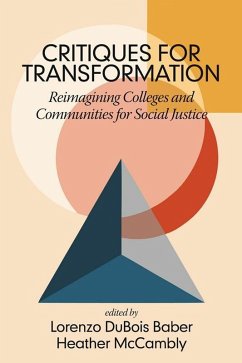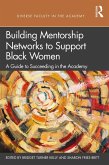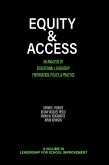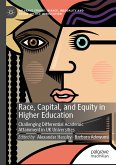To sustain contemporary movements towards educational equity, postsecondary leaders at all levels need resources that connect evidence-based critiques of structural inequities to forward-thinking visions for a more socially-just academy. To address this critical challenge, we bring together scholars to deconstruct oppressive norms of theory and practice and provide a direction towards reconsiderations across various postsecondary contexts. Each chapter identifies a normative practice that reinforces material and cultural oppression of student populations from minoritized identities, challenge underlying assumptions that support current norms, and make recommendations for redeveloping practices that center the well-being and success of underserved student populations. In presenting a range of expertise and disciplinary foci in the study of higher education, this volume contributes to a holistic re-envisioning of colleges and universities as transformational spaces for social change.The book provides insights and recommendations from scholars to a wide-ranging audience, including federal and state policymakers, postsecondary administrators and leaders, philanthropists, researchers, and graduate students. The primary audience are graduate students enrolled in various educational leadership programs including educational policy studies, higher education, student affairs, curriculum and instruction, or learning sciences. This book will be especially valuable for increasing the focus on generative critique in research, practice, and policy in graduate programming curriculum. This volume will also be a valuable resource for policymakers involved in shaping postsecondary initiatives at the local, state, and federal levels. Finally, this book will appeal to current practitioners at colleges, and universities as they seek additional professional development and cross-institutional collegiality around practices related to social justice and equity.ENDORSEMENTS:This book opens with an account of Ronald Reagan's draconian policies and practices to silence political dissenters and demonstrators within the University of California. Horrifyingly, we now have politically ambitious governors using Reaganesque tactics to shut down critical race theory, the teaching of authentic Black history, the use of terms like Latinx. Critiques For Transformation: Reimagining Colleges & Communities For Social Justice is the essential antidote to the antidemocratic Orwellian practices that are bent on disempowering advocates for racial justice. - Estela Bensimon. University of Southern CaliforniaCritiques for Transformation: Reimaging Colleges and Universities for Social Justice provide impressive examinations and posit modes to envision "reimagining" ways for universities to move toward authentic diversity, equity, and inclusion (DEI). The senior, mid-career, and emerging professionals tackle DEI from a variety of conceptual frameworks that contribute to rich discussions of challenges and opportunities. By examining some classic writings from education and social sciences, the chapters elucidate how contemporary scholarly activities and research can be linked to the integrative roles of public engagement for both internal university communities and external audiences. The volume will be quite helpful to a range of constituents within the United States, i.e., a nation that has some of the most diverse structures and systems of colleges and universities. - Beverly Lindsay, Pennsylvania State UniversityTo offer a scholarly critique is often uneven with little attention dedicated to altering the most troubling patterns, in this case, in higher education. This book brings rigorous critique but also engages in world-building, taking up what we can do today to make higher education break with its exclusionary and profit-seeking ways. Every chapter focuses on a particular facet of higher education and carefully imagines it as a space for possibility rather than arbitrary rules for the sake of hierarchy. As higher education wrings its hands about its place in the pandemic, this book is the guide. - Leigh Patel, University of Pittsburgh
Dieser Download kann aus rechtlichen Gründen nur mit Rechnungsadresse in A, B, BG, CY, CZ, D, DK, EW, E, FIN, F, GR, HR, H, IRL, I, LT, L, LR, M, NL, PL, P, R, S, SLO, SK ausgeliefert werden.









